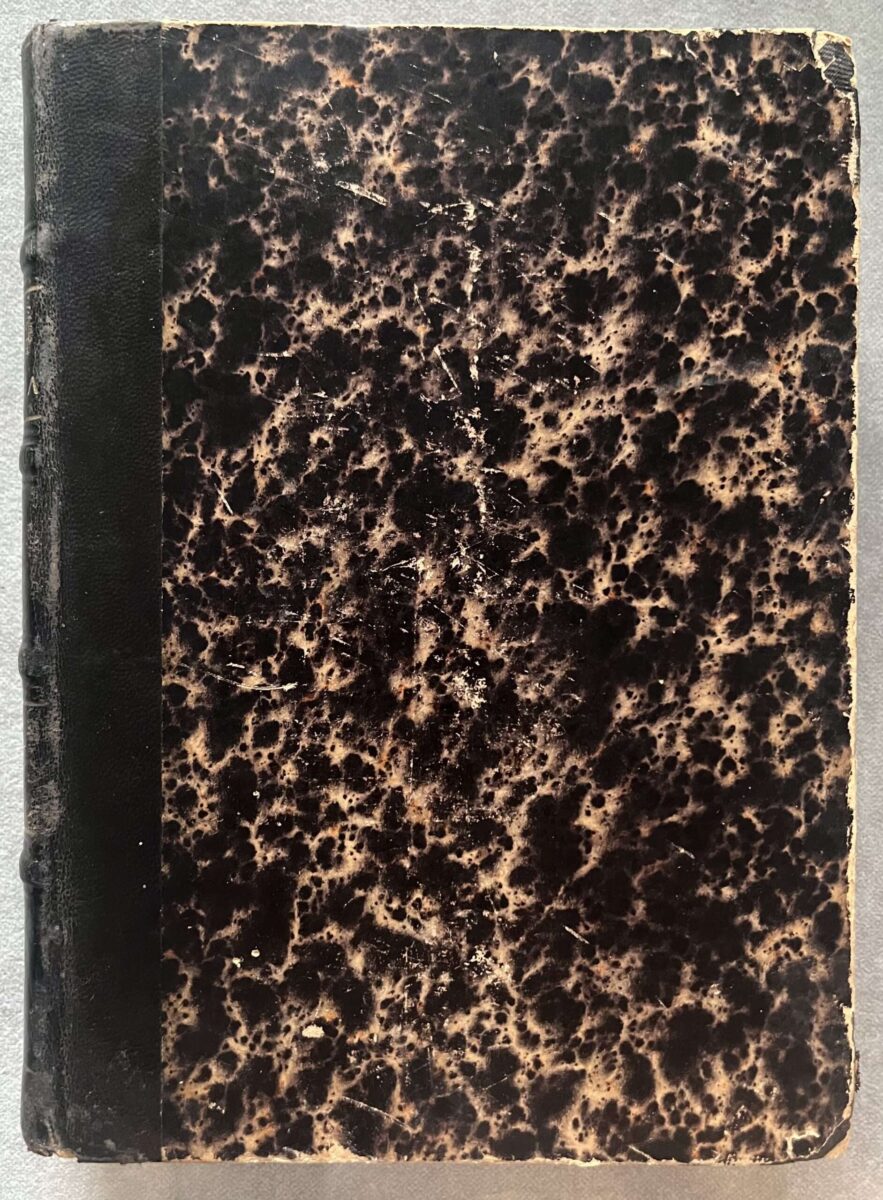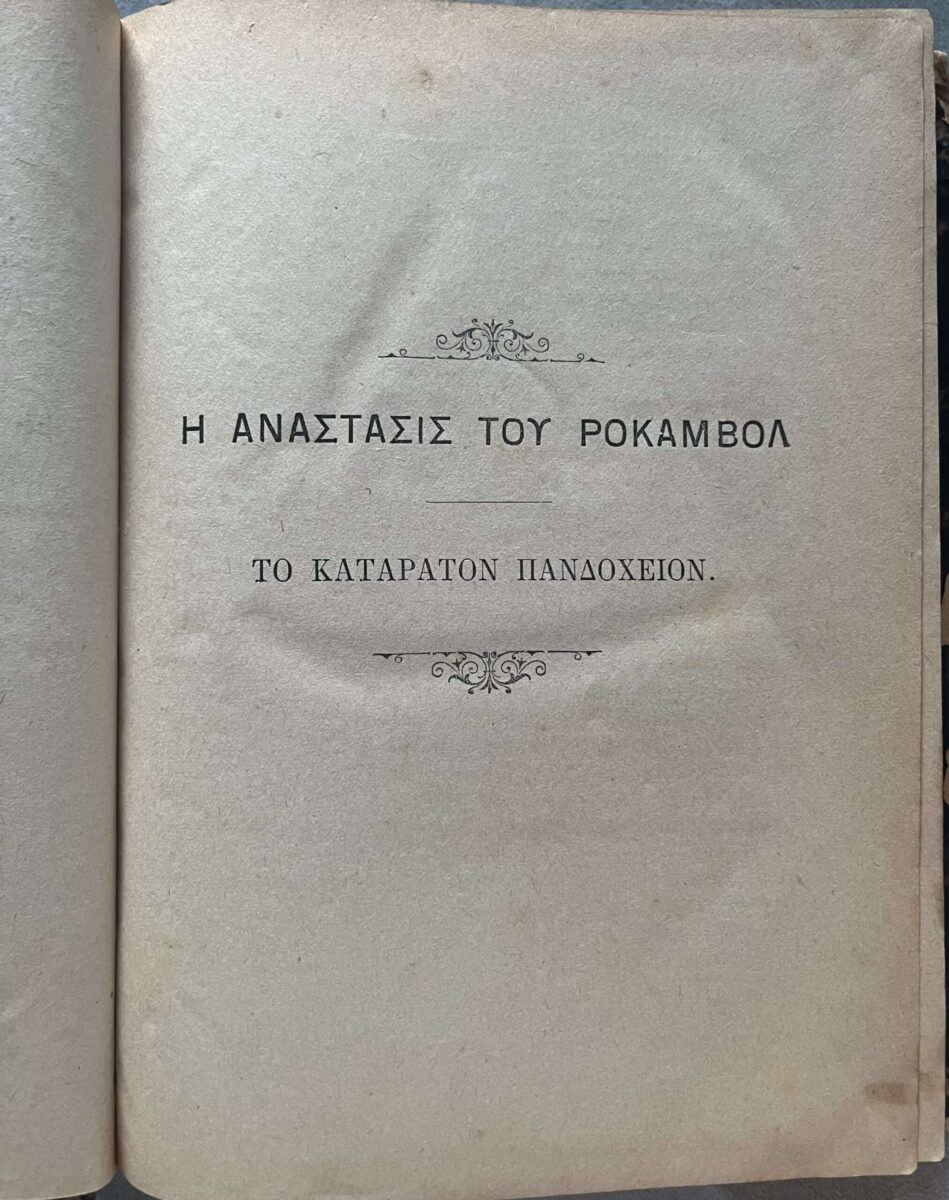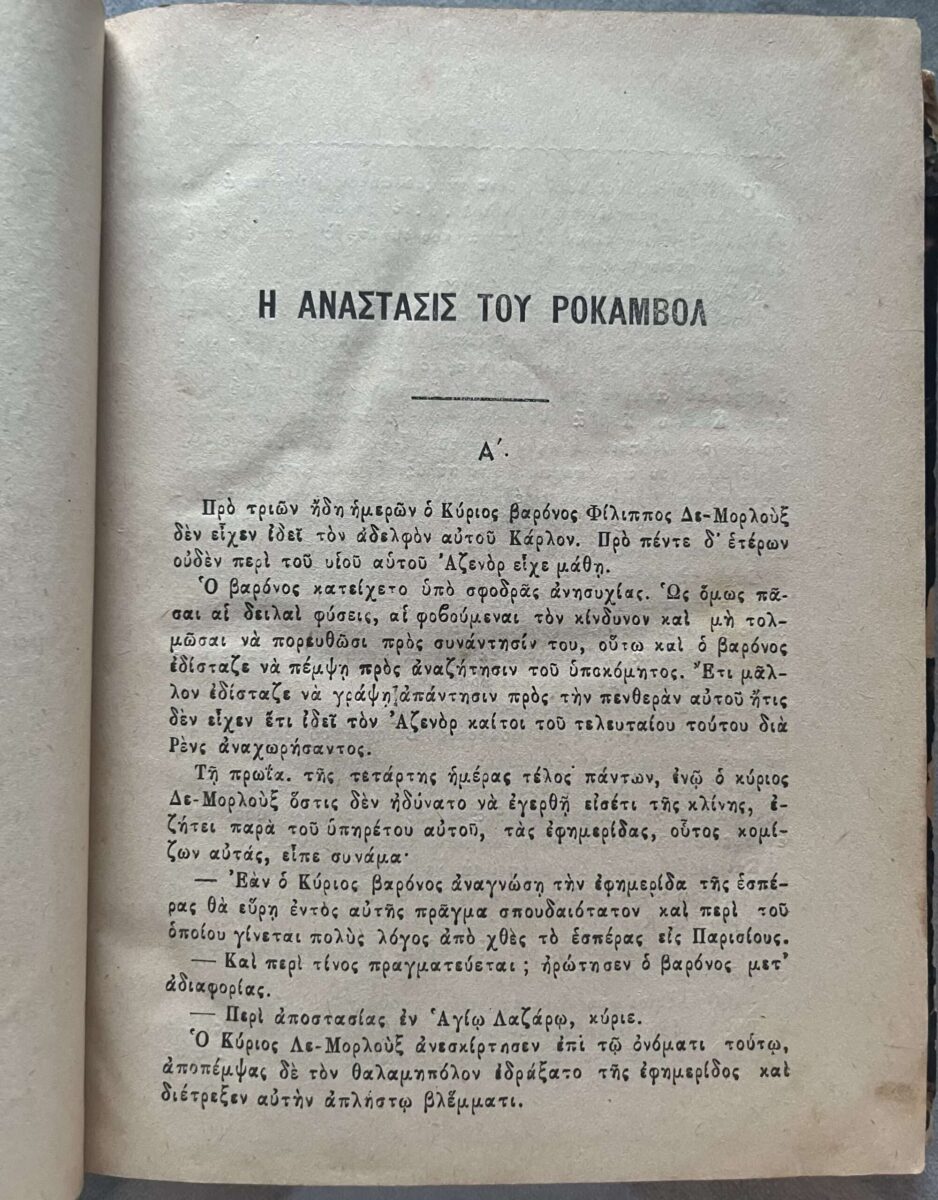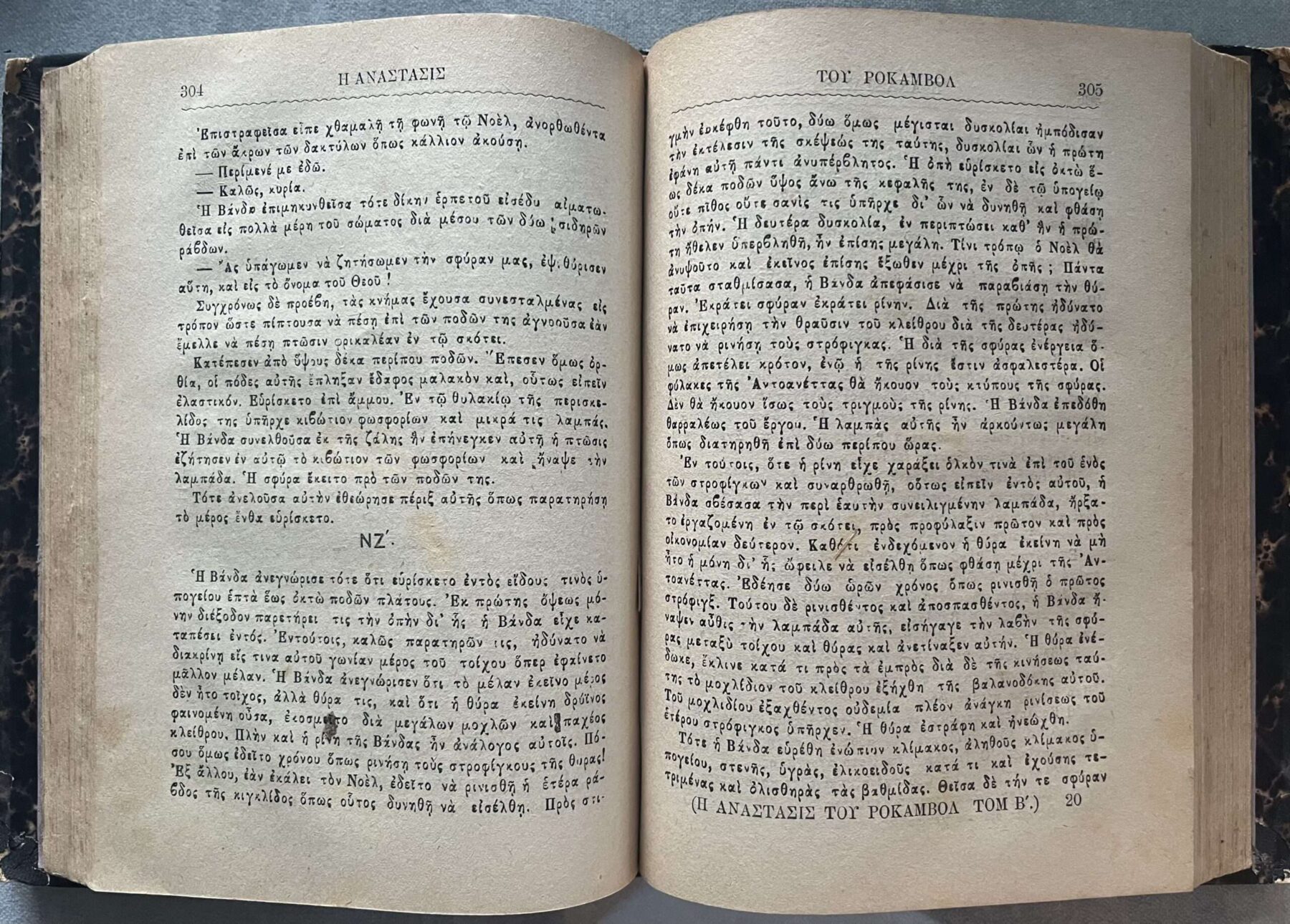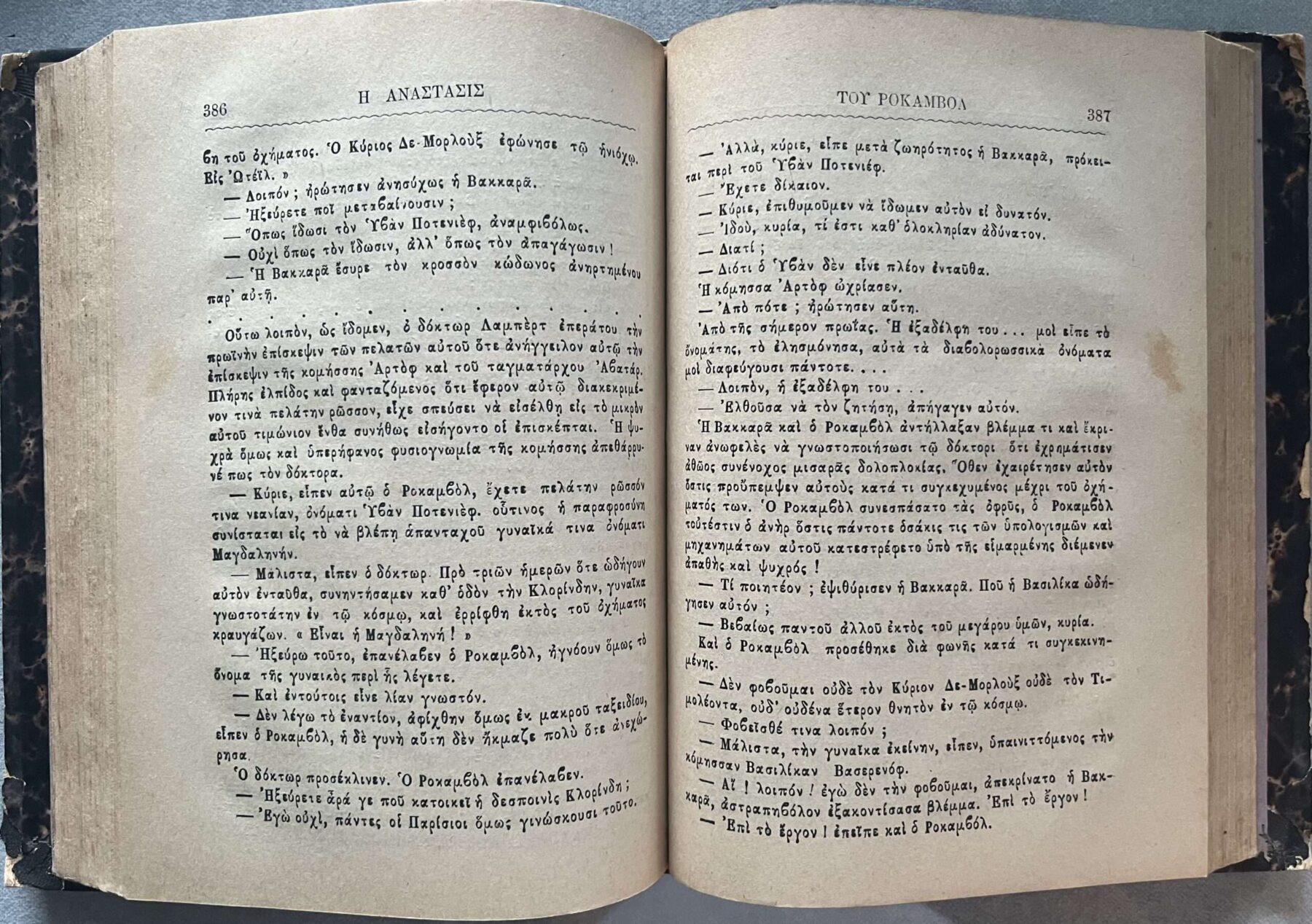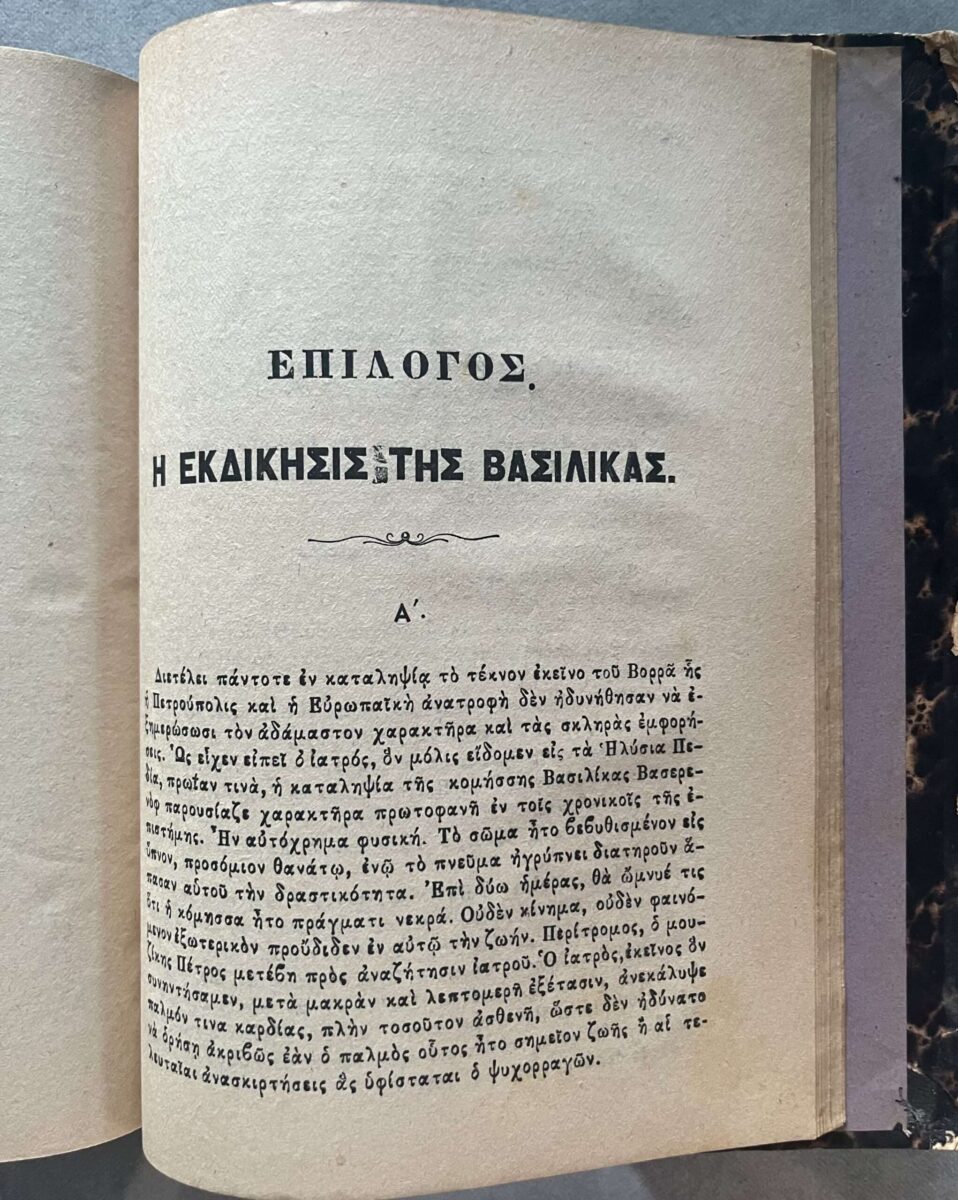1888, GREEK BOOK PRINTED SMYRNA, Rocambole’s Resurrection, Ponson du Terrail
330.00€
Rare Greek Book Printed in Smyrna, Asia Minor
Description
Rare Greek Book Printed in Smyrna, Asia Minor
Ponson de Terrail
Η Ανάστασις του Ροκαμβόλ
Συνέχεια των Άθλων του Ροκαμβόλ
εκδίδονται Αδειαι του Μεταφραστού
Δημητρίου Α. Βελλή
Πέτρος Ν. Γεωργιάδης
Βιβλιοπώλης, Εκδότης
Τόμος Δεύτερος
Εν Σμύρνη εκ του Τυπογραφείου ο Τύπος, 1888
Ponson Du Terrail
The Resurrection of Rocambole
Continuation of the Rocambole’ Feats
Translator’s Licenses are issued to
Dimitriou A. Vellis
Petros N. Georgiadis
Bookseller, Publisher
Volume Two
Printed in Smyrna by Typos Printing Office in 1888
Very Rare Edition
Contemporary Half Leather Binding
Pages 598
19,5 cm x 14 cm
Pierre Alexis Joseph Ferdinand, Vicomte de Ponson du Terrail (1829 – 1871) was a French writer. He was a prolific novelist, producing in the space of twenty years some seventy-three volumes, and is best remembered today for his creation of the fictional. Ponson du Terrail’s early works squarely belonged to the Gothic novel genre: his La Baronne Trépassée (1852) was a murky Ann Radcliffe-like tale of revenge in the macabre surroundings of 18th century Germany Black Forest. The novel was translated by Brian Stableford as The Vampire and the Devil’s Son in 2007. When Ponson du Terrail embarked in 1857 on writing the first novel of the Rocambole series, L’Héritage Mystérieux (also known as Les Drames de Paris) for the daily newspaper La Patrie, he merely meant to copy the success of Eugène Sue’s best-selling Les Mystères de Paris. Rocambole’s importance to Mystery fiction and Adventure novels cannot be underestimated, as it represents the transition from the old-fashioned Gothic novel to modern heroic fiction. The word rocambolesque has become common in French to label any kind of fantastic adventures, especially those with multiple new turns in the story. Rocambole became a huge success, providing a constant and considerable source of revenue to Ponson du Terrail, who continued churning out his adventures. In total, he produced nine Rocambole novels. His other notable novels include Les Coulisses du monde (1853) and Le Forgeron de la Cour-Dieu (1869). In August 1870, as Ponson du Terrail had embarked on a new Rocambole saga when Emperor Napoléon III surrendered to Germany. Ponson fled from Paris to his country estate near Orléans, where he gathered a group of like-minded companions and began a guerilla-style warfare, not unlike what Rocambole himself would have done. However, Ponson was soon forced to flee to Bordeaux after the Germans burned down his castle.
Additional information
| Languages | Greek |
|---|
You may also like…
-

1877, Rare, GREEK BOOK PRINTED IN SMYRNA, ASIA MINOR, Alexandre Dumas, The Vicomte of Bragelonne
330.00€ Add to cart -

1840, GREEK LAW BOOK, PROSECUTOR G. A. NAFTIS, First Edition, KING OTTO OF GREECE
185.00€ Add to cart -
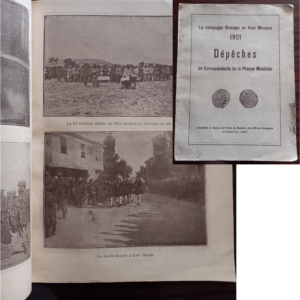
The Greek Campaign in Asia Minor 1921, Photo Book, Greece, First Edition
80.00€ Add to cart -
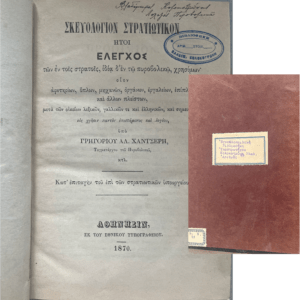
SIGNED, 1870, GREECE, EX LIBRIS, VLADIMIROS KOLOKOTRONIS, G. HANTSERIS, MILITARY EQUIPMENT BOOK
235.00€ Read more


